Interview
“Israel must transition from the Startup Nation to the Innovation Nation”
Yizhar Shai, Israel’s Minister of Science and Technology discusses his hopes to see SpaceX open a local branch, joint scientific agreements with the UAE, a homegrown Covid-19 vaccine, and Israel staying out of the U.S.-China trade war
In an exclusive interview, Minister of Science and Technology Yizhar Shai spoke to CTech about Israel’s next ventures in space, future scientific collaborations, diplomacy, and how Israel can retain its innovative edge as the Startup Nation.
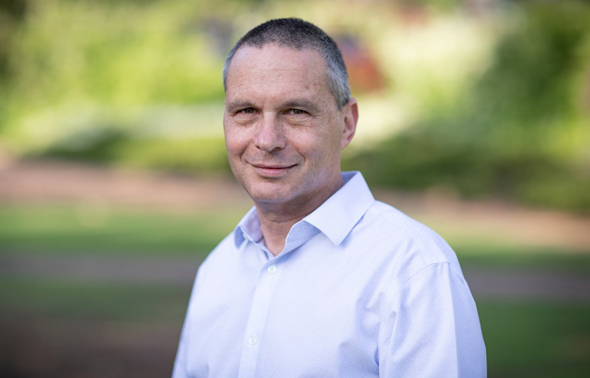 Minister of Science and Technology Yizhar Shai. Photo: Elad Malka
Minister of Science and Technology Yizhar Shai. Photo: Elad Malka “For Israel, innovation is a state of mind, it’s not only related to the number of startup companies we have here. Innovation is one of the foundations of our culture here, and I’d like to see us make that transition in branding from the Startup Nation to the Innovation Nation,” Shai told CTech’s Yafit Ovadia.
“It will signal to the world - to both international and local groups - that we’re not only about startups anymore, but that we’re all about innovation,” he said.
Shai, (57), was a partner at the venture capital fund Canaan Partners Israel, a former Chairman and CEO of V-Secure Technologies, and was an entrepreneur in the field of Israeli startups prior to being appointed minister. He was a member of the Blue and White party led by Minister of Defense Benny Gantz, but recently quit. It is unclear whether he will be in the transition government. Shai replaced outgoing minister MK Ofir Akunis from the Likud party in May 2020. Shai has also been a guest-speaker featured at Calcalist’s conferences.
As the Science and Technology Minister, what accomplishments has the ministry registered this past year?
“Since May 2020, we have accomplished a number of achievements, on a number of different fronts. On the international front, we have secured two important bilateral cooperation agreements, one with the UAE, which relates to the science, technology, and research fronts and aims to create joint projects in the fields of agritech, watertech, cyber, and artificial intelligence.”
“The second agreement is essentially an extension of the 1972 agreements with the U.S., signed by then-Israeli ambassador Yitzhak Rabin, which enhances the cooperation levels around science and technology, also known as the Binational Science Foundation. It also opens up Ariel University and research facilities in the Golan Heights to joint Israeli-U.S. funds that are managed under its provisions.”
Does this have anything to do with President Donald Trump’s recognition of the Golan Heights as falling under Israeli sovereignty?
“I’m assuming so, it goes without saying.”
What efforts has the ministry made to combat the Covid-19 (coronavirus) crisis?
“On the science front, we’ve funded a few hundred research projects, about 100 of which were related to combatting the Covid-19 crisis, in biology, virology, and others. We’ve also initiated an international platform for scientific cooperation so that we may share our findings on Covid-19 with the rest of the global community.” The platform is composed of twenty science ministers, or their parallels in other countries, and helps governments cope with challenges posed by the pandemic.
The ministry also elected Prof. Peretz Lavie to be the incoming chairman of the National Council for Civilian Research and Development, to oversee national R&D.
Have government budget cuts affected the ministry in any way? I see that the ministry is pushing forward with several programs regardless.
“Absolutely. We have had to cut back on a number of education projects that concern tens of thousands of students. In addition, funding for research projects is on hold.”
Since the Israel Space Agency is also part of the ministry, he related that when it comes to future space programs “there is also a very significant question mark.”
How is the ministry supporting the local space tech industry? Does it offer guidance or any other incentives to young space tech startups or others in the tech field?
While those programs are under the auspices of the ISA (Israeli Space Agency), the ministry “also funds and supports the development of young space tech companies,” he said and noted that Israel has a number of international projects where it builds, launches, and manages satellites in cooperation with other countries, most recently its launch of Dido-3, with commercialized Israeli group SpacePharma and the Italian Space Agency in September, which will transmit data to Earth about its scientific experiments that are concerned with anti-bacterial agents, bacteria-resistance, DNA folding in zero-gravity like conditions, and the protein albumin.
He also noted the Tevel program, where high school students aged 16-18 will send their nanosatellites into space very soon
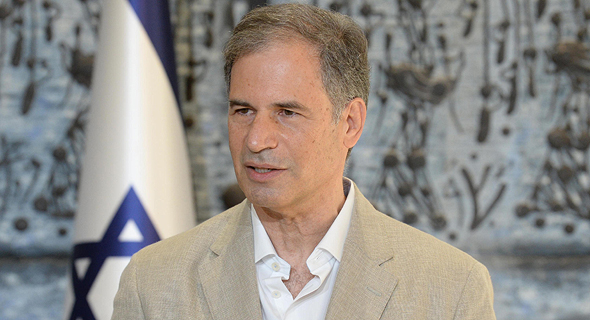 Eytan Stibbe will be Israel's next astronaut, and the ministry will collaborate with the Ramon Foundation on the mission. Photo: GPO
Eytan Stibbe will be Israel's next astronaut, and the ministry will collaborate with the Ramon Foundation on the mission. Photo: GPO
Can you explain your participation and collaboration with the Ramon Foundation, and the decision to send the next Israeli astronaut, Eytan Stibbe to space? How was the ministry involved? Can you reveal who will be the other astronauts on board?
“Well I can assure you that they won’t be Israelis, but since I can’t speak to that information at the moment, I can tell you that one of those names is very exciting,” he said.
He noted that the ministry along with the ISA will be orchestaring government efforts as it relates to the mission, although it will be managed by the Ramon Foundation.
“We are the government interface that will identify, sort through, and select the science projects that will accompany Eytan in space. We will also be responsible for putting together the educational programs that will accompany Eytan over the next few months, where he will be lecturing at schools, and taking questions from the public.”
What are some of your programs geared toward youth? In light of the absence of women from this field, is the ministry pushing any specific programs to encourage young girls and women to pursue STEM studies?
“We have projects to specifically encourage young women, or young female scientists, to pursue STEM subjects, enhance their scientific curiosity, and allow them better access to mostly male courses.” The Future Female Scientists Program is specifically engineered for this purpose, he noted.
The ministry also works to promote scientific education for women and girls, under two additional committees, the Council for the Advancement of Women in Science and Technology and the Committee on the Status of Women and Gender Equality. The ministry appointed Dr. Sharon Rashi-Elkeles to head up the latter agency, who co-founded EVE – Femtech hub, a group that promotes entrepreneurs with technological ideas in the Femtech sector, or women's health.
“We help women all the way from their university courses to when they enter the industry in order to make sure that women get equal chances, participation, opportunities, promotions, and can operate within those areas.”
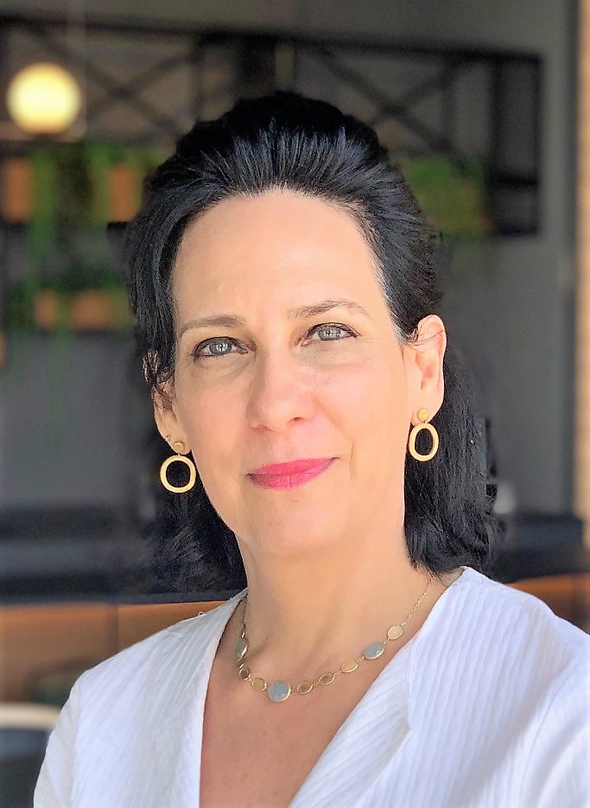 The ministry appointed Dr. Sharon Rashi-Elkeles to lead an agency that promotes women in science
The ministry appointed Dr. Sharon Rashi-Elkeles to lead an agency that promotes women in science
How will the ministry be involved and participate in the Beresheet 2 mission?
While Beresheet 2 is still in the process of finalizing its operations, it will be a three-to-four year project. Although it has particularly ambitious plans, Shai thinks there is still room for further collaboration.
“It will be as aggressive a mission as Beresheet 1, but even more so. We will be responsible for establishing and securing international ties and cooperation that will be crucial to ensuring the success of Beresheet 2 that will include funding some of the experiments or machinery on board, although I cannot disclose which countries have agreed to participate yet. That said, we have negotiated an agreement with NASA to allow their participation in this project as well.”
NASA also participated in the Beresheet 1 mission, and its Lunar Reconnaissance Orbiter later captured images of the crash site and the small crater the Israeli spacecraft formed on the Moon’s surface.
This year and the next in particular almost seem like the ministry’s golden hour to shine. What are your hopes for the local space industry, scientific accomplishments, and goals for Israel for the coming year?
“Aside from sending Eytan to the ISS in 2021, we hope to see the Israeli government endorsing and funding a multi-year program, which is part of our 10-year roadmap that will have Israel become a major player in the field of NewSpace. By the end of the decade, we hope to see 350 space tech startups in Israel. In addition, we want to see a few dozen international companies in NewSpace with branches operating here in Israel, such as SpaceX. We hope to see some 33,000-40,00 high tech employees in the field of aerospace and NewSpace in particular.”
“We believe that government endorsement and support of this program will create a new category of economic innovation in Israel. On the space front, we hope to see agreements with the UAE and are working on building a statewide project, and are also in discussions with European countries as well on those fronts. I think that 2021 may become an even more exciting year for the Israeli space sector.”
How are you supporting the tech sector in surviving the Covid-19 crisis?
He noted that the ministry has established a special branch of its office that deals with the government interface in high tech, and ensures that companies have a direct line to government authorities to send queries.
“We have supported early-stage research that leads to the formation of startup companies. It produces findings that prioritize new businesses which are around the early stage of research, and have also been in close contact with Israeli CEOs, investors, founders, or any players in the high tech ecosystem to help them interact with the government during a time of crisis to locate budgets, and get funding for high tech projects throughout the crisis.”
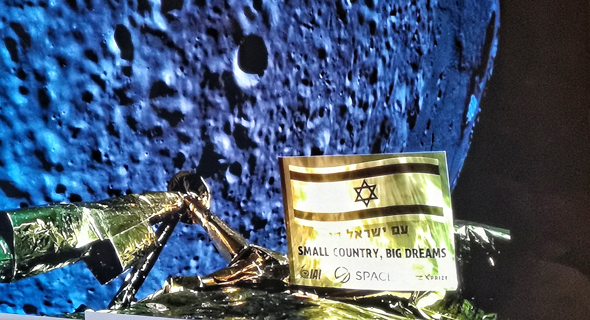 The ministry will work on collaborating with other countries to fund the Beresheet project, pictured above is the first lunar attempt. Photo: IAI/SpaceIL
The ministry will work on collaborating with other countries to fund the Beresheet project, pictured above is the first lunar attempt. Photo: IAI/SpaceIL
As private investment in early stage startups dries up, do you think the government should invest directly in innovation?
“I think the government should be committed to promoting early stage innovation through investing in early stage startups and encouraging local financial institutions to invest in local venture capitalist firms, to ensure that Israeli money funds Israeli tech startups. While the next step would be to encourage international investors to invest in Israeli startups, I believe that the role of government is to make sure that early stage companies have what they need to grow and to become attractive to investors, since they are at the top of the financial triangle for the Israeli market. We need to facilitate and create policies to enable early stage companies to flourish here.”
You mentioned in the past that the Israel Innovation Authority should come under the purview of the Science and Technology Ministry, will that happen?
“Eventually it has to happen. The government has to unify all of its efforts as it relates to science, tech, and innovation. Today we are spread too thin and need fewer government agencies, not more. Of course, something like this takes time. It won’t happen overnight, and definitely not during the course of this government which has been dissolved. With that said, I hope to see the next government support a plan with policies that will unite all government agencies under one single umbrella that will deal with innovation, and be called the ‘Office of Science and Innovation.’”
The tech industry is constantly experiencing a shortage of workers. What solutions exist to fill the gap?
“First, we have to see how we come out of this crisis, which won’t be until next mid-year. However, I hope to see the industry grow very quickly out of the crisis, and lessen the shortage of workers.”
“I believe that the government should set aside projects, budgets, and policies to train enough qualified high tech workers. The projects that have been developed in recent years concern graduates and contain tailor-made courses and training for specific high tech positions, and not only for programmers but also for product managers, online digital marketing, etc.,” he said, adding that he hopes to see a transition from other industries to high tech.
Other countries are rapidly catching up, so how can Israel retain its innovation edge, and more specifically as it relates to the NewSpace sector?
“We’ve looked at NewSpace thoroughly and put together a plan that does exactly that - it defines how Israel will become a new worldwide leader in NewSpace. The way to do this is to use government funding to build infrastructure for aerospace companies. Sending experiments to the ISS is expensive, and they need to be performed in labs that aren’t affordable for small companies or countries. The government must set policies to enable the transition of knowledge and information from the military industry - which is very robust - to the civilian industry. We have seen this transition in the cyber sector, but now it must be implemented in the space sector as well,” he said. “Most countries regard space policy and capabilities as a national asset, and it should be carefully and responsibly used by the civilian industry, and allowed to grow.”
We’re seeing a boost in various types of companies in the Israeli space tech sector, but human spaceflight companies are considered too expensive by many, do you think Israel can enter that sector as well?
“I’m not sure we will see that platform here. Building spacecraft equipped for human spaceflight is too expensive for us as a nation to afford. However, Israel is an international power in the field of mobile communications, and while we don't build the platform of actual automobiles here, we certainly build the autonomous, mobile, and communication aspects; and any other type of technology that is incorporated into cars today. We are a significant contributor in that field.”
“The same has happened here, we won’t build spaceships here, but we can build everything else. On the military front, we build everything from scratch for national security issues, such as tanks, satellites, and entire platforms,” he explained. “In the NewSpace industry, we see a line between what we want to do here and what we want to acquire from other industries around the world.”
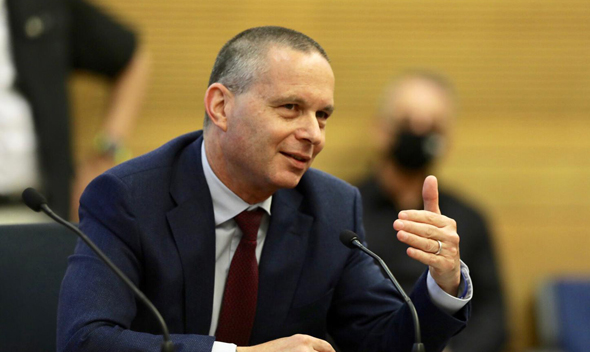 Shai in the Knesset. Photo: Elad Malka
Shai in the Knesset. Photo: Elad Malka
What is the government doing on the foreign policy front to ensure Israeli tech companies are not caught in the middle of the U.S.-China trade war?
“We are doing exactly that, trying to stay away from that. We are working hard to comply with U.S. government policies as they relate to restrictions in their relationship with China. On the other hand, we have ongoing cooperation with China and its industries, and have maintained a type of separation, a differentiation, if you will, between what we do and what we are allowed to do.”
He noted that Israel has established a government committee that is similar to the Committee on Foreign Investment in the United States (CFIUS) that guides U.S. foreign investments, and ensures that the president is able to oversee any possible national security implications of foreign direct investments (FDI) in the economy.
The Israeli version aims to ensure that “any Israeli foreign investments do not violate U.S. security interests. At the same time, we want to maintain a good standing with the Chinese government,” he said.
Aren’t you concerned about potential breaches of information, especially as that pertains to compromising national security interests?
“While any data breach of our national security interests is our main concern; we don’t want to point a finger at China. It’s a national interest to protect our interests 24/7, and we have many agencies in charge of protecting our national assets. Based on what we’ve seen around the world, many countries are involved in spying. This is obviously an ongoing concern, but to make sure that we are aware of the risk, we are working around the clock to protect our assets and people accordingly.”
As elections are around the corner, what are your hopes for the future of the ministry and for Israeli science and technology over the next few years?
“The year 2020 proved to humanity the importance of science and technology in solving real-world problems. As we march toward the end of the pandemic, our efforts have been improved by the thousands of scientists and researchers around the world, who have emboldened this notion of unifying humanity around the world to solve the crisis.”
“Israel is in the process of developing its own Covid-19 vaccine, which will be an amazing national achievement, and I think we should remember that the high tech and innovation industry in Israel continued to work hard and achieve success during the pandemic, as well as Israeli research and academia.”
“I’m very hopeful and optimistic about seeing the year 2021 as a year of exiting the pandemic crisis and leveraging Israeli science and tech assets and capabilities to help us as a nation, to help us get back out there, grow our economy again, and bring people back their jobs.”



